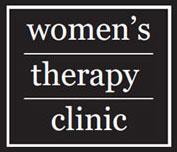
Many women find themselves asking why a relationship that once felt loving now feels tense, confusing, or painful. There are no visible bruises, yet something feels wrong. This experience often points to subtle abuse, a quiet but powerful form of emotional control that slowly erodes self-confidence and autonomy.
At Women’s Therapy Clinic, we see how difficult it can be to identify these patterns. Subtle abuse doesn’t announce itself. It grows gradually, often disguised as concern, love, or misunderstanding. Understanding what it looks like is the first step toward change.
What Is Subtle Abuse?
Subtle abuse describes behaviors that undermine one partner’s sense of safety, confidence, or independence while giving the other increasing control. It is not about occasional conflict or miscommunication. Instead, it is a pattern of manipulation and dominance that can leave someone questioning their worth or even their sanity.
Common examples include:
- Minimizing or dismissing your feelings
- Making you doubt your memory or perception
- Criticizing your choices under the guise of “helping”
- Using silence, withdrawal, or affection as tools for control
- Gradually isolating you from supportive friends or family
Subtle abuse often begins in relationships that appear loving and stable. Over time, however, one partner gains more decision-making power while the other feels smaller, quieter, and increasingly anxious about doing something “wrong.”
Why High-Functioning Women Are Especially Vulnerable
It is a painful irony that women who are confident and capable in their professional lives can be particularly susceptible to subtle abuse. High-functioning women tend to take responsibility for outcomes, whether in business, family, or relationships. This sense of accountability is an admirable strength, but it can become a liability when a partner uses it to shift blame.
When problems arise, high-achieving women often ask themselves, “What can I do better?” rather than, “Why am I being treated this way?” They double down on self-improvement, try to communicate more clearly, or give their partner the benefit of the doubt. Unfortunately, the more responsibility they take, the more the imbalance grows.
Subtle abuse thrives in this imbalance, where one partner feels responsible for fixing everything and the other avoids accountability entirely.
The Signs You Might Be Experiencing Subtle Abuse
It’s normal for relationships to have disagreements or stressful periods. But subtle abuse follows a consistent emotional pattern rather than occasional conflict. Signs to look for include:
- Feeling anxious before speaking up
- Worrying about your partner’s reaction to everyday situations
- Avoiding certain topics to “keep the peace”
- Feeling smaller or less confident over time
- Noticing that your partner’s needs consistently outweigh your own
In healthy relationships, communication brings relief. In abusive dynamics, communication brings fear. If you find yourself walking on eggshells, trying to prevent emotional explosions, or staying silent to protect the peace, it may be time to take a closer look.
How Subtle Abuse Affects the Body and Mind
The body often recognizes danger before the mind can name it. Chronic stress from emotional abuse can cause tightness in the chest, stomach knots, headaches, fatigue, and even insomnia. Over time, you may start to feel numb or detached, a protective response to prolonged emotional strain.
This numbing is a sign that your body has endured too much stress for too long. It is trying to protect you by shutting down emotional responses, which can make recognizing the abuse even harder. Therapy can help reconnect these signals and rebuild a sense of safety within your body.
What to Do If You Suspect Subtle Abuse
The first step is observation. Take a mental step back from the relationship and look at patterns rather than isolated moments. Ask yourself:
- Does my partner take responsibility for hurtful behavior?
- Do I feel free to express my needs without fear?
- Have I become less myself in order to avoid conflict?
If the answer to these questions leaves you uneasy, it may be time to set a small boundary. Observe your partner’s reaction carefully. A healthy partner may struggle at first but will reflect and work toward change. An abusive partner will twist your words, blame you, or ignore your request altogether.
If setting boundaries feels unsafe or leads to threats, reach out for support from a therapist or domestic violence helpline. Abuse tends to escalate when control is challenged, so it’s essential to create a safety plan before making significant changes or leaving.
Reclaiming Your Sense of Self
Healing begins with believing your own experiences. You do not need proof in the form of physical harm for your pain to be real. If you have felt unseen, controlled, or silenced, your feelings matter. Therapy can help you rebuild trust in yourself, recognize healthy boundaries, and learn to identify the red flags of manipulation early on.
